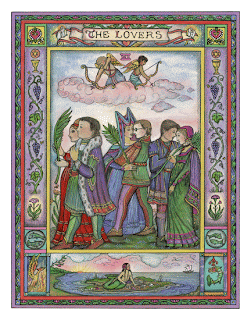A maga cannot be possessed by any man, and she will love many, if the Gods look upon her with favor before they call her home.
– Briana of East Selen
This semester, students in my first year seminar Environment and Politics in Central America are reading Gioconda Belli’s compelling memoir The Country Under My Skin, which recounts Belli’s involvement with the Sandinista Revolution in Nicaragua during the 1970s and 80s. My students tend to love this book; they find Belli’s prose very accessible and come to admire her as a modern day heroine who risked life and family to take up arms against an oppressive and violent regime.
That admiration is being undercut, however, for at least one of my students, who has found that the multiple love affairs Belli reports having had during those tumultuous years is beginning to get on her nerves:
“She [Belli] has gone from being an admirable, strong woman,” this student recently wrote, “to my idea of why women are so weak. They rely on men’s strength for comfort.”
This statement has been echoing in my head ever since I read it a couple weeks ago, and has me wondering in a broader sense about the relationship between love, sex and the image of strength in our heroines. Women with multiple lovers are often called “fickle”, “inconstant” and “weak”, or any number of much more uncomplimentary words, but does calling them all these things make it so?
Is a female protagonist with multiple lovers by definition weak?
Is a female protagonist with multiple lovers by definition weak?
When I began crafting the world of Eolyn, I had it very clear in my head how sex, and especially women’s sexuality, would be seen by the subculture of the Magas (the particular tradition of witchcraft that Eolyn inherits). I even allowed Magas to use the term ‘sexuality’ in the original draft of the novel, until Terri-Lynne DeFino challenged me on this because, as she argued, sexuality as a concept didn’t really exist in the Middle Ages, making the word anachronistic in the context of epic fantasy.
On the one hand, I thought Terri had a point, but her comment put me in a difficult dilemma. While sexuality may be anachronistic in the context of pseudo-medieval societies, it was not in any way anachronistic for the Magas of Eolyn’s world, who understood the concept of a woman’s desire (shall we say, “needs”), and considered it an integral part of women’s magic. There was no way I could sacrifice the concept of 'sexuality' without losing a very important pillar of their worldview.
With a little bit of thought and some help from a friend, I invented the magical term ‘aen-lasati’, which literally translates to the ‘fire within’. So the word was changed in the final version of the novel, but the concept remains.
Aen-lasati is considered one of the gifts of Primitive Magic, the most ancient, powerful, and least understood class of magic recognized by Mages and Magas in Eolyn’s world. Aen-lasati is divine in nature, and Magas (as well as Mages) are taught to respond to it with joyful reverence, not with fear, and certainly not with prohibition.
There is no such thing, in a Maga’s world, as meaningless sex. All sex, when freely shared, is considered sacred. On the other hand, there is no maxim that sexual relationships must be bound by rules of “love” and “fidelity”. Indeed, according to some lines of thought, the whole concept of fidelity flies in the face of a true understanding of aen-lasati.
(This is a little [ahem] different from how I was brought up as a Kansas girl from a Catholic family. But that’s another story. . .)
The perspective of the Magas is unique even in the context of Eolyn’s world, where women are generally expected to fill the traditional roles we associate with patriarchal medieval societies. This causes no small amount of tension and conflict, not only for Eolyn, but for all the Magas who have come before her.
From an author’s point of view, the practical implication of aen-lasati is that my heroine has no qualms about sleeping with a man she does not intend to stay with forever. She can also embrace the possibility of loving two (or perhaps more) men at once. Now, there is a hero in her story who is the wonderful, complex alpha-type guy that most readers would expect the heroine to commit to when all is said and done. But there is no guarantee that Eolyn will, even if given the opportunity. As a maga, she is generally reluctant to promise herself to one man because she knows (or has been taught) that sooner or later aen-lasati will kick in, and that the Gods may very well direct her toward another union with someone else in the not-so-distant future.
Does this make Eolyn weak? I really don’t think so. But it sets her apart from many of the heroines I’ve known, most of whom seem clearly destined to settle with the one heroic guy who is “right” for them – even if they sleep with multiple partners along the way.
I’m certain there are exceptions to this rule; Guinevere comes to mind as an example, and I imagine we’ll hear others in this week's discussion. But for the most part it seems to me there is one hero out there for every heroine; and that we typically expect the Heroine, in her heart of hearts, to wait, like the legendary Penelope, steadfast and true to her Man.
I look forward to hearing your thoughts. . .
Note: I have tried to construct this essay in a way that avoids spoilers for those who have not yet read my novel. For those of you who have already read EOLYN, I would very much appreciate it if you do the same with your comments. Thank you!
Posted by Karin Rita Gastreich
